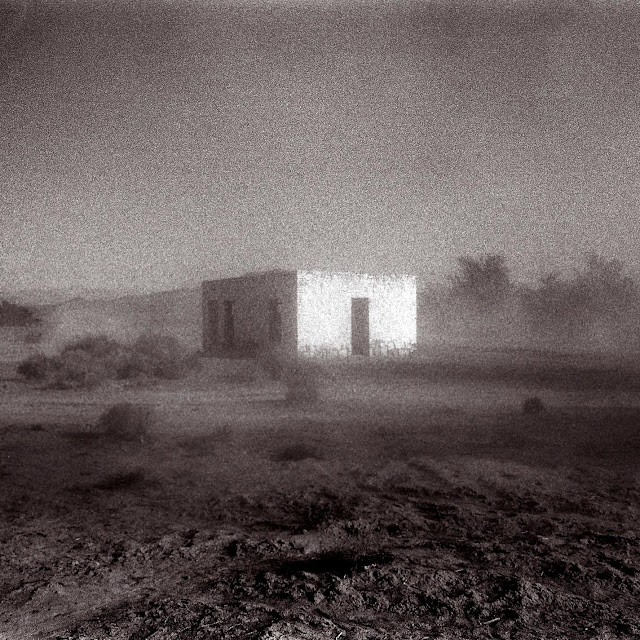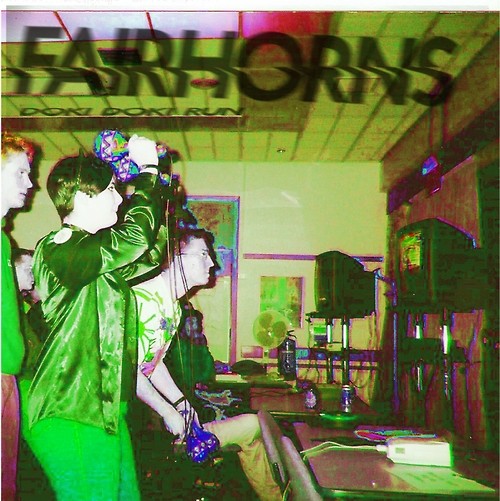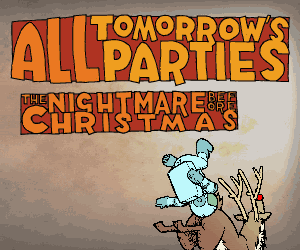Matthew Hegarty isn't quite your average nu-folk charmingly naïve troubadour that have been cropping up like dandelions amongst the rustic fields of musical nature. For starters, he's still troweling muck and raking leaves as a landscape gardener during the hours of daylight. He also lives in Aldershot, a ghost town on the fringes of Hampshire renowned for, well, as Hegarty himself accentuates, nothing more than a bleak longing for a faded decadence.
Dots: Hello Matthew. There can’t be many folk acts these days designing equally beautiful landscape gardens as bruised, Bon Iver-esque musical fragility... Have you plans to tuck your trowels away in the shed any time soon or does the “day job” aid you in your endearing strive for sanity and anonymity amongst the forever changing tides of folk?
Matthew: The "day job" has always helped when I get a bit too caught up in the music world, as spending the day digging in the mud literally and mentally brings you back to earth immediately. It helps give me a bit of perspective, and I often get ideas when working. The nature of some of the work, for instance digging, raking etc is very repetitive, giving your mind a chance to wander, and it normally wanders to vocal melodies, which I then sing on my phone before I forget them.
Dashes: Shying away from the spotlights of the live setting, what drew you to acoustica originally and when did it dawn on you that your larynx had some rather spectacular capabilities hidden away?
Matthew: I originally played in rock bands, but have always loved old folk songs and it took me some time to realise that's exactly what I wanted to write. My voice has changed substantially over the years, though it's always been quite gravelly. It's taken me a while to develop my delivery though. I guess a lot of it has to do with different artists I listen to, and the influence they hold over me.
Dots: Does such timidity inhibit your ascent to widespread adoration, or does it merely offer a broader perspective through which you’re able to interpret personal scenarios more faithfully?
Matthew: I'm not a particularly timid person, though I'm not naturally given to getting up and talking in front of people. So playing live is something I've had to work at, and I'm comfortable with it now. Talking through microphones is a whole other kettle of fish though..!
Dashes: Largely lightweight folk born of Twickenham has burst the banks of Britain’s mainstream lately. Namely through the recent Communion Compilation, you’re evidently affiliated with the likes of Mumford & Sons and Broadcast 2000. Does such genre integration enthral or repel you from your contemporaries?
Matthew: I recorded Deadwood about a year ago on a 12 track at home, which was a part of my first self-released EP. I spent the rest of that year playing solo shows in London and the south, for the most part at poorly-run gigs, with confused line ups and acts I wasn't really into. So when I listened to the other musicians on the compilation I was utterly blown away by the quality and diversity of the song writing, and was also surprised that there was all this other music out there I was really into, being written by artists at the same level as me regarding their success. It was great to see lesser known acts alongside Johnny Flynn and Peggy Sue, so for me it was a kind of validation to what I was writing, and exciting to be included with all these other musicians.
Dots: Do you feel as though such affiliations have cleared the paths to your own quite unique niche, or do you feel that said scenes shroud out musical individuality?
Matthew: It's definitely cleared a path for the sort of music I'm writing. I don't feel the musicians on the compilation are part of a particular scene as they're from all over the place, and you can hear that in the diversity of the writing. I think if you're affiliated with certain artist, there's a strong possibility their fans are going to be interested in what you're doing but obviously a large part of the struggle is getting your music exposed to the right audience and trying to lift your head above the thousand of other artist out there on the web. So having affiliations with more established bands can at least direct the right people to what you're doing, and they can make up their own minds after that.
Dashes: Following Bon Iver’s triumphs of yesteryear, comparisons must have become unanimous. How would you better introduce the To The North EP?
Matthew: I'm not sure about the Bon Iver comparisons, but I really love his record so it's very flattering that people think mine shares some qualities with it. In terms of introducing 'To The North' I'm not great at snappy summaries so think the best thing is for people to have a listen and make their own minds up.
Dots: Much modern music is oft devoid of the geographical marks engrained into tangible records these days. Aldershot, enowned for little more than a fabled Beatles gig and dodgy early-90s house must have imprinted itself fairly firmly amongst the blueprints you’d laid down before putting plectrum to pickups...
Matthew: I live in Aldershot now, but didn't grow up here. It's a pretty bleak place and that may be the reason as to why I write about rivers and woods - it's just £1 shops, take away places and the remnants of the army. It might be hard to work some geographical landmarks from Aldershot into my lyrics, but I could always give it a go! There's not much here that I find inspiring, just the need to avoid writing about it. A bit of escapism is always good in my book.
He releases debut EP To The North on 12th April. It's rather wonderful and if you haven't heard it already, indisputable highlights I Will Remain and Within The Rose can be streamed here. Matthew & the Atlas also play August's Green Man Festival in the heart of Wales' mystic Brecon Beacons, alongside headliners The Flaming Lips and Joanna Newsom.
























